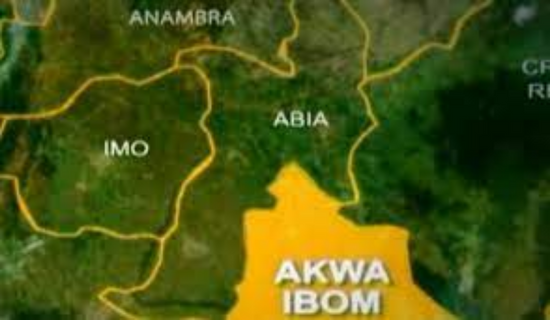The tranquility of seven fishing communities in Eastern Obolo Local Government Area, Akwa Ibom State, Nigeria, has been shattered by the alleged actions of Sterling Petrochemical and Fertiliser Company (SPFL), a firm operated by Indians. The communities – Emere-oke, Ikonta, Obianga, Okoroinyong, Egwenwe, Iwofe, and Amazaba – accuse SPFL of obstructing their waterways, cutting them off from other parts of the state and exacerbating an ongoing cholera outbreak. This blockage, they claim, has created immense hardship, preventing access to medical care and essential supplies, and tragically contributing to over 20 deaths in Emere-oke alone.
At the heart of the dispute lies a land acquisition deal in 2022, where the Akwa Ibom State Government, under the previous administration of Governor Udom Emmanuel, granted SPFL 1,736 hectares of land for its operations. The communities contend that SPFL has overstepped the agreed boundaries, encroaching upon an additional 1,200 hectares, including the Okolo Obianga/Ikonta and Okolo Otuita rivers, which are vital federal waterways and crucial for the communities’ fishing livelihoods. They allege that this expansion, coupled with the blockade, is a blatant disregard for their traditional rights and a violation of environmental laws and best practices.
Adding to their grievances, the communities accuse SPFL of intimidation and high-handedness since operations began in 2022. They feel trapped and abandoned, their traditional way of life threatened by the company’s actions. The ongoing cholera outbreak has only magnified their vulnerability, as the blocked waterways prevent them from seeking timely medical assistance and obtaining necessary supplies. Their pleas for help seem to be falling on deaf ears, with both SPFL and the state government offering little to no response.
Joshua Ayagwung, the village head of Emere-oke 11, speaking on behalf of the affected communities, has issued a desperate plea for intervention. He demands the immediate reopening of all blocked waterways and creeks, urging their restoration to their original state to allow residents free movement and the continuation of their traditional fishing activities. Beyond this immediate concern, he calls for a thorough investigation into SPFL’s operations, requesting the involvement of the highest authorities in the country, including the Minister of Justice, National Security Adviser, Inspector General of Police, and Comptroller General of Nigerian Immigration Service.
Their demands extend to a probe into the status of Indian immigrants working for SPFL, urging the authorities to prosecute any individuals found to be residing or working illegally within Eastern Obolo and Akwa Ibom State. This reflects a deeper concern about the potential exploitation of local resources and communities by foreign entities operating with impunity. The silence from both SPFL and the state government only fuels their anxieties, raising suspicions of complicity or, at the very least, a lack of concern for their plight.
The communities’ desperate situation underscores a broader issue of corporate responsibility and accountability, particularly in the context of resource extraction and development in vulnerable communities. Their struggle highlights the potential for conflict when industrial expansion clashes with the rights and livelihoods of local populations. The lack of engagement from both the company and the government further exacerbates the crisis, leaving the communities feeling powerless and abandoned. The urgent need for intervention and a thorough investigation is clear, not only to address the immediate health crisis but also to safeguard the long-term well-being and traditional way of life of these seven fishing communities. Their survival, both physically and culturally, hangs in the balance, demanding immediate action and a commitment to just and sustainable development practices.














